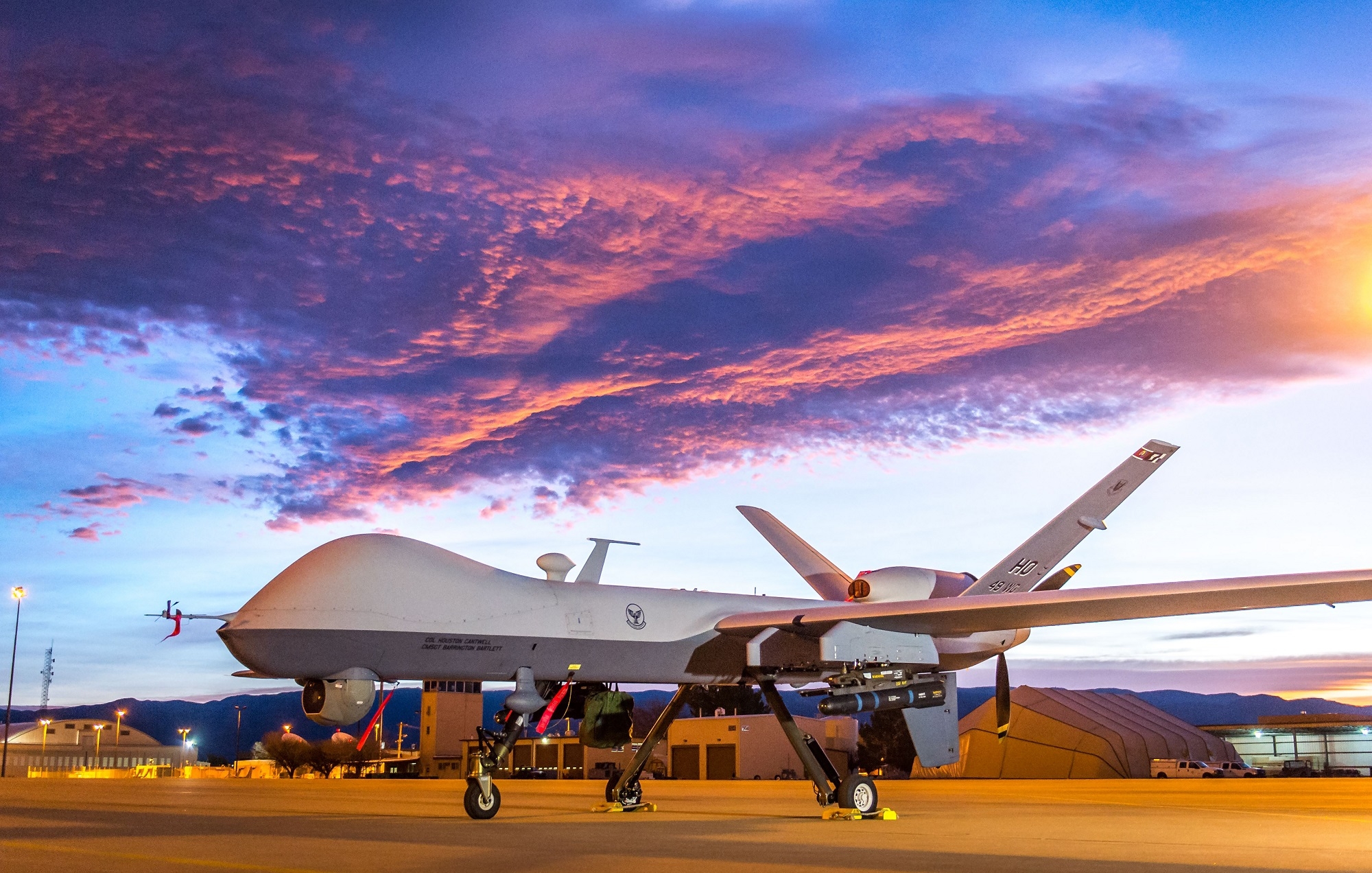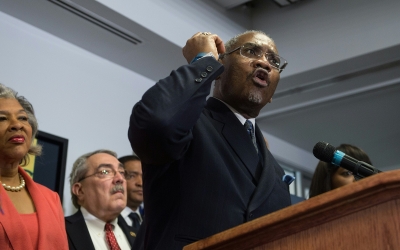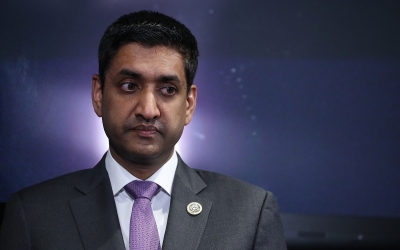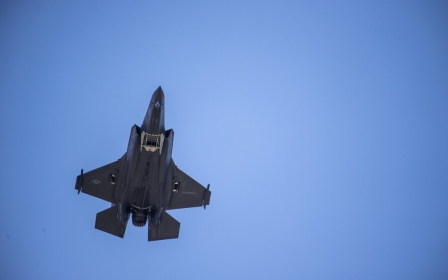UAE arms deal: Critics turn to Biden as Senate fails to block $23bn sale

After the US Senate failed to block an enormous arms deal with the United Arab Emirates, opponents of the sale are turning to the incoming administration of President-elect Joe Biden to reverse or at least condition the delivery of the weapons, which include killer drones and F-35 jets.
A legislative effort to disapprove parts of the $23bn deal fell short late on Wednesday despite growing calls from anti-war and human rights groups to halt it. The weapon package also includes $10bn of munitions.
"Folks who opposed the sale, we next turn to an incoming Biden administration and try to urge on national security grounds why they should discontinue and stop the sales from going through," said Seth Binder, advocacy officer at the Project on Middle East Democracy (POMED).
Two separate resolutions to object to the sale of the drones and advanced fighter jets were defeated 46-50 and 47-49 .
Legislators opposing the deal had underscored Abu Dhabi's role in the conflicts in Libya and Yemen as well as its poor rights record at home. They also raised concerns about the security of advanced American military technology with the UAE government, which enjoys friendly relations with Russia and China.
New MEE newsletter: Jerusalem Dispatch
Sign up to get the latest insights and analysis on Israel-Palestine, alongside Turkey Unpacked and other MEE newsletters
"There is clearly a disagreement on whether the UAE is a responsible international actor - that's not just in Yemen, but also in Libya. And they are going to be watched moving forward," said Jeff Abramson, senior fellow at the Arms Control Association.
He added that with a new Congress and a new administration, the pushback against the sales will only get stronger.
Biden has vowed to "reassess" relations with Saudi Arabia - a shift that Abramson said will extend to Riyadh's allies in Abu Dhabi because of their close ties and partnership in the Yemen war.
"You will continue to see that push to also be rethinking that relationship with the Emiratis moving forward. I think those two conversations are going to get intertwined," Abramson told MEE.
Disappointment and encouragement
With the Senate unable to block the deal, the Trump administration will start formalising the "letters of offer and acceptance" to complete the sales - a process that can take anywhere from days to months.
Even then, items in the weapons package have varying timelines for delivery - with the F-35s taking years before they will be handed to the UAE. The president has the authority to halt or revise the sales up until the weapons are in possession of the Emiratis.
Abramson noted that the incoming Congress - with a possible Democratic majority in both the House and the Senate - may introduce legislation to block or impose conditions on the delivery of the weapons.
On Tuesday, the vote fell largely along party lines, with Democratic Senators Kyrsten Sinema and Mark Kelly the only Democrats voting against the resolutions and Rand Paul, a co-sponsor of the measures, the only Republican backing them both.
Senator Chris Murphy, one of the leading voices in Congress calling for oversight over arm sales, voiced dismay after the vote on Wednesday.
"Rushing through massive sales of Reaper drones and our most advanced fighter jets to the Middle East just makes defense companies richer and international security poorer," the senator said in a statement.
But he expressed optimism about the prospect of re-examining the deal when Biden takes office next month.
"While I am disappointed the Republican-controlled Senate failed to block these sales, I am eager to work with the incoming administration to take a closer look at each of these sales before any transfers are completed," the senator said.
Binder of POMED also said that while the outcome of the vote was not what anti-war groups were hoping for, it was an encouraging sign that a large number of legislators have taken up the cause of congressional oversight on the arms trade.
"It is an encouraging sign that with an incoming Biden administration, nearly every Democrat sent a strong signal of where their party lies in that they oppose these sales," he told MEE.
Annie Shiel, senior adviser for US policy and advocacy at the Center for Civilians in Conflict, also found both discouraging and promising signs in the outcome of the Senate vote.
"While the Senate's failures to block these sales was disappointing and it sent a signal of impunity for civilian harm among other things," She told MEE, "the closeness of the vote sends a really important signal to the Biden administration - that a lot of senators, including most of his party, do not support moving forward with the sale and have significant concerns about the arms transfer process more broadly."
Calling for reform
Shiel called on the president-elect to push to reform the process for approving weapon deals. As it stands, US law gives Congress narrow powers to block arms sales.
Once the executive branch approves of a sale, lawmakers only have the ability to block it by introducing legislation; their approval is not required. And any bill would likely face a presidential veto. (Congress disapproves sales only after they are supported by the administration)
In fact, last year Trump vetoed a measure to halt the delivery of $8bn in arms to Saudi Arabia and the UAE.
Shiel called for "flipping the script" - instead of giving Congress the chance to block sales, requiring legislators' approval of deals.
That would protect congressional oversight from presidential veto power and give legislators an automatic say in the matter, helping them avoid the administrative hurdles to get a bill up for a vote. Biden himself championed this particular reform as a senator in 1986.
'I don't think the US should be in the business of bribing Arab countries with arm deals to normalise relations with Israel'
- Seth Binder, POMED
Moreover, Shiel urged "reforming the executive branch decision-making process to ensure that human rights and civilian harm risks are key considerations at every step."
Activists have long been objecting to the UAE's leading role in the wars in Yemen and Libya.
Abu Dhabi has been a chief partner in the Saudi-led coalition in Yemen. With the spread of famine and disease and the deaths of more than 100,000 people, the conflict has turned the already impoverished country into the world's "worst humanitarian crisis" according to the UN.
And while the UAE defends its role in Yemen by insisting that it has withdrawn from the war-torn country, critics accuse Abu Dhabi of still arming and training militias in the conflict.
In Libya, the UAE is backing rogue eastern general Khalifa Haftar, who is trying to violently overthrow the UN-recognised government in Tripoli. Rights groups as well as the United Nations have accused Haftar's forces of abuses in Libya.
Emirati support for the eastern commander also violates a UN arms embargo on the North African country, and last week the US accused the UAE of providing support for Russian mercenaries fighting against the government in Tripoli.
Normalisation
Abramson stressed that the current weapons deal not only includes advanced weaponry - at more than $23bn it is gigantic.
"This is truly a massive package. I don't think that is as well understood as it needs to be," he said.
"The F-35s are a highly sophisticated weapon. These are going to take years to deliver, but you also have the drones, which will introduce something new to the Emirati arsenal... The other piece of it is $10 billion worth of missiles and bombs. That's a huge arsenal. One of the real questions is: Why is this needed now?"
The deal came months after the UAE signed a normalisation agreement with Israel, absolving Abu Dhabi of US law provisions that prohibit the sale of advanced weapons to Arab countries in order to maintain Israel's so-called qualitative military edge (QME) in the region.
Trump appears to be doling out gifts, including weapon deals, to Arab states that normalise ties with Israel.
On Thursday, Trump announced on Twitter that Washington has recognised a Moroccan claim to Western Sahara, a disputed territory where inhabitants are seeking their own state.
Less than one minute later, he sent another tweet declaring that the North African kingdom is normalising ties with Israel. The US administration is also negotiating the sale of killer drones to Rabat, Reuters reported on Thursday.
"I don't think the US should be in the business of bribing Arab countries with arm deals to normalise relations with Israel," Binder told MEE.
Normalisation pacts should stand on their own merit, he added.
Middle East Eye delivers independent and unrivalled coverage and analysis of the Middle East, North Africa and beyond. To learn more about republishing this content and the associated fees, please fill out this form. More about MEE can be found here.






